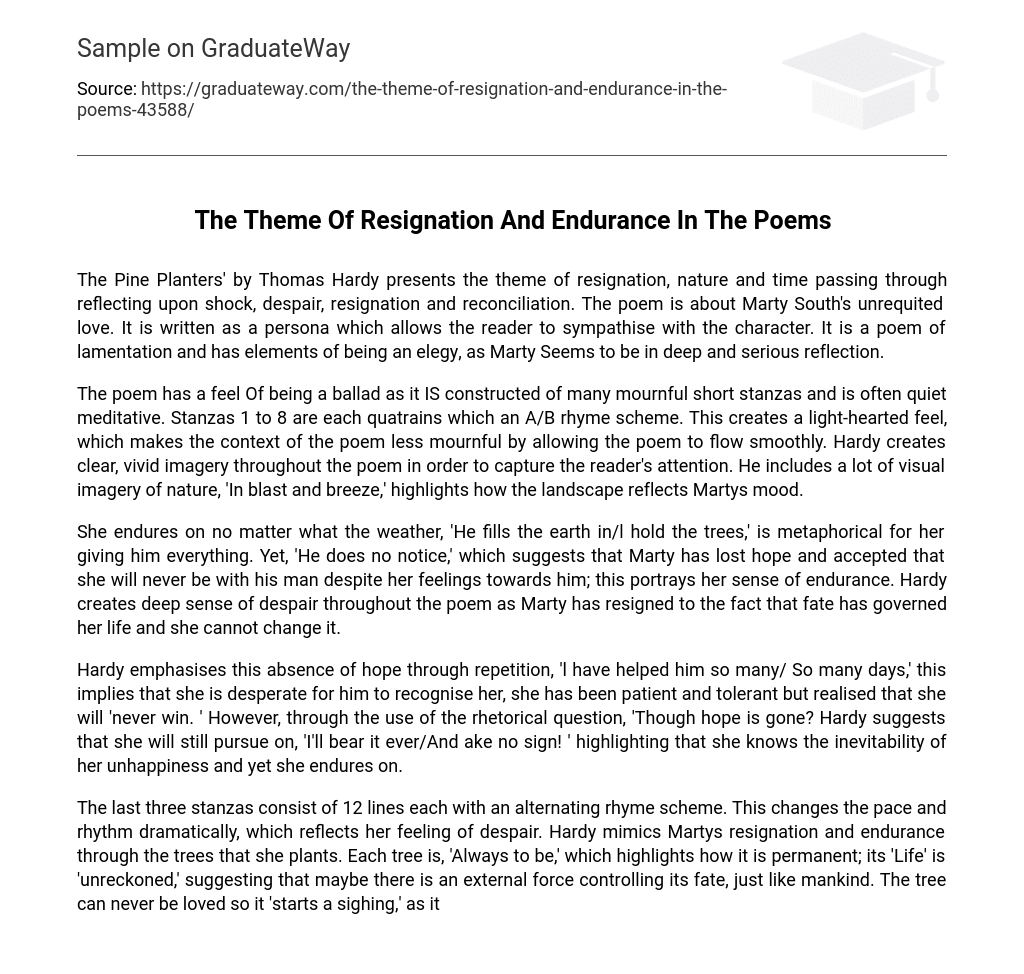The Pine Planters’ by Thomas Hardy presents the theme of resignation, nature and time passing through reflecting upon shock, despair, resignation and reconciliation. The poem is about Marty South’s unrequited love. It is written as a persona which allows the reader to sympathise with the character. It is a poem of lamentation and has elements of being an elegy, as Marty Seems to be in deep and serious reflection.
The poem has a feel Of being a ballad as it IS constructed of many mournful short stanzas and is often quiet meditative. Stanzas 1 to 8 are each quatrains which an A/B rhyme scheme. This creates a light-hearted feel, which makes the context of the poem less mournful by allowing the poem to flow smoothly. Hardy creates clear, vivid imagery throughout the poem in order to capture the reader’s attention. He includes a lot of visual imagery of nature, ‘In blast and breeze,’ highlights how the landscape reflects Martys mood.
She endures on no matter what the weather, ‘He fills the earth in/l hold the trees,’ is metaphorical for her giving him everything. Yet, ‘He does no notice,’ which suggests that Marty has lost hope and accepted that she will never be with his man despite her feelings towards him; this portrays her sense of endurance. Hardy creates deep sense of despair throughout the poem as Marty has resigned to the fact that fate has governed her life and she cannot change it.
Hardy emphasises this absence of hope through repetition, ‘l have helped him so many/ So many days,’ this implies that she is desperate for him to recognise her, she has been patient and tolerant but realised that she will ‘never win. ‘ However, through the use of the rhetorical question, ‘Though hope is gone? Hardy suggests that she will still pursue on, ‘I’ll bear it ever/And ake no sign! ‘ highlighting that she knows the inevitability of her unhappiness and yet she endures on.
The last three stanzas consist of 12 lines each with an alternating rhyme scheme. This changes the pace and rhythm dramatically, which reflects her feeling of despair. Hardy mimics Martys resignation and endurance through the trees that she plants. Each tree is, ‘Always to be,’ which highlights how it is permanent; its ‘Life’ is ‘unreckoned,’ suggesting that maybe there is an external force controlling its fate, just like mankind. The tree can never be loved so it ‘starts a sighing,’ as it





